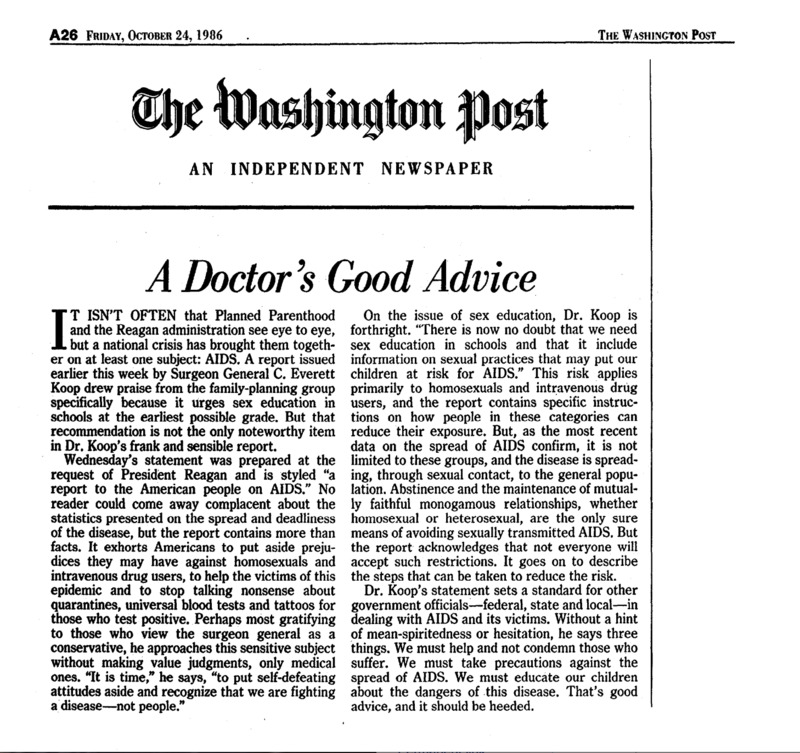A Doctor's Good Advice
This article in the Washington Post was published on Friday, October 24, 1986. This article writes about a report by Surgeon General C. Everett Koop in which he writes how he believes the national crisis of AIDS needs to be encountered. Dr. Koop recommended sex education in schools: “‘There is now no doubt that we need sex education in schools and that it include information on sexual practices that may put our children at risk for AIDS.’” This idea received praise by Planned Parenthood. The article points out that usually this organization and the Reagan administration did not “see eye to eye” but the AIDS crisis brought them together. Dr. Koop believes that the only way avoiding AIDS is abstinence and monogamous relationships. However, he realizes that not everyone will follow these guidelines which is why sex education is imperative. Dr. Koop’s three advices are these: “We must take precautions against the spread of AIDS. We must educate our children about the dangers of this disease.” Kekla Magoon wrote a book about sex education in schools. According to her, “HIV/AIDS radically changed the way Americans viewed sex and sexuality. It also changed sex education. A great divide developed between sex educators in the 1980s and 1990s” (Magoon 25). The divide was between those educators who wanted to teach safer sex and risk reduction and those who wanted to discourage premarital sex. Magoon’s information supports the idea that the outbreak of AIDS make the United States refocus on sex education and how it should be implemented and taught.
“A Doctor's Good Advice .” The Washington Post, 24 Oct. 1986, p.A26.
Magoon, Kekla. Sex Education in Schools. Abdo Publishing, 2010. EBSCOhost, proxy-remote.galib.uga.edu/login?url=http://search.ebscohost.com/login.aspx?direct=true&db=nlebk&AN=395171&site=eds-live.

